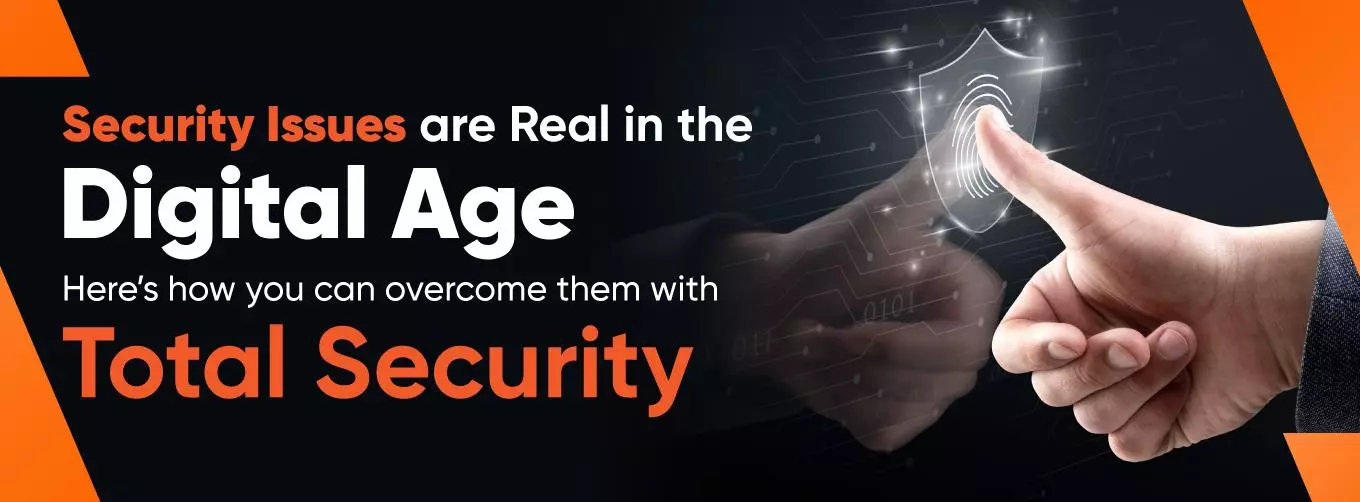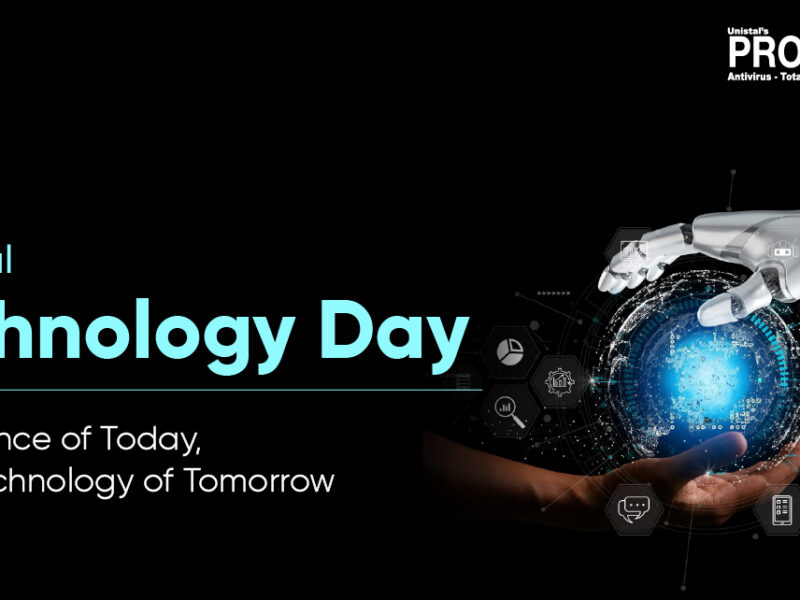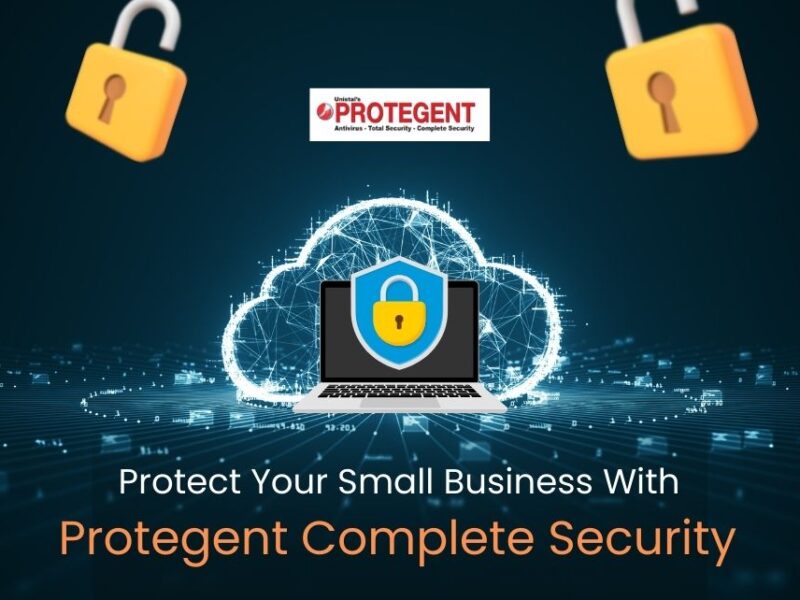
Security Issues Are Real in the Digital Age:
Here’s How You Can Overcome Them With Total Security
Any website or online application, whether it’s a Banking application processing millions of dollars every day or a website for the neighborhood to order home essentials – can fall victim to Malicious attacks and internet security issues taking place in the digital age. Hackers select their target by the loopholes or vulnerabilities, and not by the size of the organization or the person. Small systems, that might not contain confidential data might be easy targets for hackers.
You might view website security as a single protective shell to protect your confidential data and business. However, adding more shells to your security is what keeps your data safer. For example, two-factor authentication is a strong layer of protection under the circumstance that your primary password has been stolen or you just forgot it. Or, installing Total Security Software for maximum protection is what you need to keep your data safe and secure.
But, do you know what exactly is Security Issue?
In the world of ever-increasing cybercrime and the fast-growing cybercrime economy, security teams in an organization are keen to limit the damage their employees could cause. After all, it takes just a single misplaced click to welcome Ransomware into your system.
This is a Security illness and it is the worst-case scenario for an IT team experience. To tackle this deadly situation, security teams need to work more seamlessly and try to balance protection and productivity in the hybrid world.
What are the Common Mistakes you commit that result in Security Illness?
Security illness can have a destabilizing impact on the entire corporate security. Out of all the signs of security illness, there are some employees who mistakenly or deliberately commit the following mistakes such as:
- It has been found that office workers aged 18-24 try to bypass the office policy.
- Take more risks with phishing emails & deliberately click on suspicious links or open attachments out of interest.
- Practice poor password management techniques such as not using a strong credential or using the same password across multiple accounts.
- Log into some other corporate websites without using a VPN.
- Use unauthorized or unsecured Public Wi-Fi to log into corporate accounts.
- Failure to update their software or devices is a great invitation for the Malware to peep in.
- It has been found that most of the employees disregard mandatory updates.
- Use work devices for personal use such as downloading movies, playing games, and doing online shopping.
- It has been seen that half of the employees consider work devices as their personal property.
How to tackle security issues?
- Use Advanced Firewall Protection
Setting up advanced firewall protection in your organization to protect your computers and network from outside intruders. A firewall keeps attackers or external threats from getting access to your system in the first place. It monitors all the network traffic and can block unnecessary traffic. Online threats travel from computer to computer without any prior intimation to the user. While Total Security Software is a great tool to keep you protected, adding a firewall can give intrudes a tight punch that will be a great knockout.
- Use a strong VPN
VPNs are security tool that encrypts and secures your online activity with encryption and masks your real IP address, thereby changing your online location. Once you use a strong VPN, all your online activity becomes private, it cannot be accessed by any third party. Without the protection of a strong VPN, you would be at a higher risk of getting caught by online intruders who have the only aim of stealing your confidential information and sharing it with third parties.
- Use Protegent Total Security
With the ever-increasing need for the Internet and computer use, there is a dire need to use Antivirus Software that can protect your computer from rising cyber threats in the digital environment. Total Security Software offers advanced protection against any sort of cyber threat that has the power to risk your privacy in the online world. It also provides parental control to keep a check on your kid’s online internet activities.
- Use two-factor authentication
Two-factor authentication is a type of multi-factor authentication that is a security process that cross-verifies users in two different ways. As technology Is becoming more and more advanced and so is the process of cracking different passwords. So, by using two-factor authentication, an OTP will be sent so that it becomes difficult for intruders to hack your system.
- Use strong and unique passwords
Passwords are the first line of defense against illegal and unauthorized access to your sensitive information. The stronger the password, the more protected your computer is, and vice versa. You should always use strong & different passwords across multiple accounts. Here are some useful tips for creating a strong password:
- Create a combination of unique passwords at least 8 characters long
- Do not use personal information
- Always select “Never” when Google asks for Remember your password
- Change your passwords regularly
- Never disclose your passwords to anyone
- Don’t enter passwords using an unauthorized Wi-Fi
- Avoid entering passwords to devices you don’t have access to
- Don’t click on Suspicious links or emails
Clicking on suspicious links or emails can be the biggest mistake of your life. Nowadays, fraudsters are impersonating genuine companies and creating a fake sense of urgency. They send a suspicious link in your mail that they want you to click and upload your account information. The information gained by the fraudsters can further be misused to conduct identity theft or online fraud.
- Don’t use Public Wi-Fi
Public Wi-Fi is convenient but comes at the cost of expense. When you are responding to emails while sipping coffee at a famous coffee shop or scrolling social media feed absent-mindedly at the airport, someone might be tracking your online activity. Scary! Isn’t it? Henceforth, it’s always advisable not to use any public Wi-Fi.
- Update your system frequently
Whether to update the software or not is one of the common questions that might pop into your head whether you are troubleshooting a new problem or trying to download a new software update. Below are some of the ways how a software update can benefit your device:
- Better Overall PC performance
- Improved efficiency
- Robust Security
- Provide you access to the most updated features
- Maximize your hardware’s lifespan
- Reduce maintenance costs
- Saves your time and trouble
In a Jiffy
Keeping in mind the increasing number of cyberattacks, it is likely that everyone will fall victim to hackers at one point or the other. To best protect yourself, implement all the above ways or cyber security measures mentioned above.
Only by taking the above protective measures, you can prevent cyber security breaches from creating wreaking havoc in your life.
Click here to buy Protegent Total Security Software




